Lil Baby carries his two sons, Loyal and Jason, around their Atlanta home. It’s Christmas Day in the Baby household, and the whole house is brimming with excitement as his children open their gifts. It’s an incredibly intimate and unprecedented setting we see the Grammy-award winner in, but one that’s come to light in a new documentary, Untrapped: The Story of Lil Baby. Available on Amazon Prime as of last week, the 93-minute documentary follows the rapper’s meteoric rise from the streets of West Atlanta to the top of the Billboard charts. And there through it all–the award shows, the concerts, and even those quiet scenes at home–was Joshua Charow. The New York-based cinematographer has been following and documenting the rapper for the past few years, and shares that this one spent at home was one of his favorites to shoot.
“We didn’t just capture this side or that side,” he shares with V. “We were able to show who Lil Baby is as an artist when he’s performing, and we got to show who Dominique Jones is as a person when he’s going into his old neighborhood and being with his family. It was really important that we could show a full picture of who this man is to the world.”
Directed by one of Variety’s Top 10 Documentary Filmmakers to Watch, Karam Gill, the documentary captures a previously unseen side of the rapper. Between exclusive interviews and archival home footage, it offers a look into Lil Baby’s role outside of the limelight–as a father, son, and advocate for racial justice. Drake, Gunna, and more are also featured in the film, which is produced by the artist, Daniel Malikyar, Andrew Primavera, Blase Biello, and Karam Gill. Through never-before-seen footage, the film follows Lil Baby’s transformational journey as a young rapper to one of hip hop’s biggest stars. Josh shares that the team originally started filming back in 2020, with him even moving to Atlanta for a couple of months over the past few years.
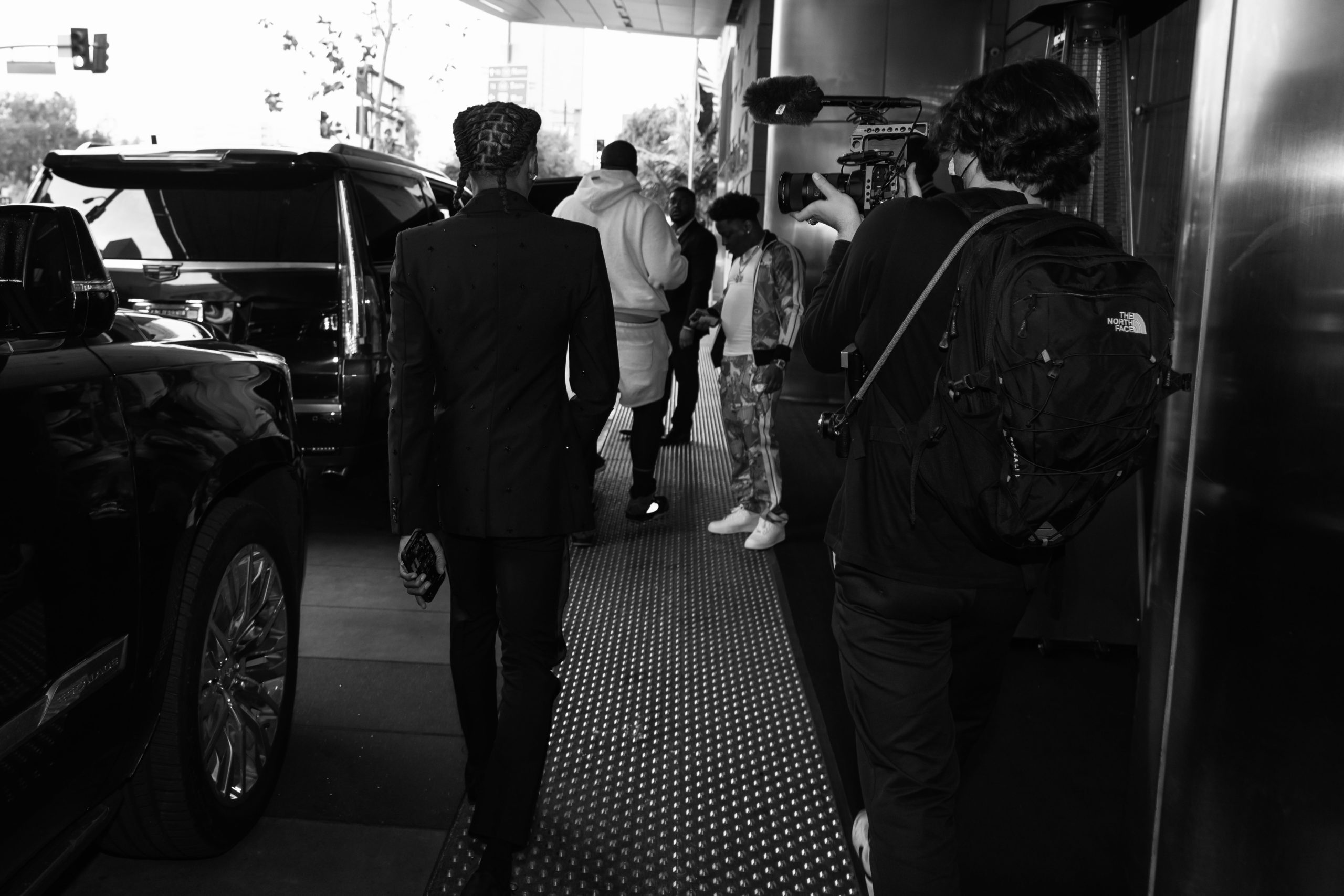
“Going into this one was a challenge because I was the only person in Atlanta for months at a time shooting this film,” he shares. “So there were certain points where there was a crew, but for most of the time, I was by myself.”
This sense of adventure and veering into the unknown is what originally drew Josh to film and cinematography. In high school, he used to scale buildings and wander through subway tracks, and with his camera work, he brought his audiences to places they’d never seen before. As an urban explorer, he was passionate about finding the beauty in the deserted or forgotten, and that desire to bring those untold stories to life stands at the core of his artistry today.
“Being a part of that community was really about going into the unknown, taking a camera, and capturing something beautiful that people hadn’t seen,” Josh elaborates. “So I think it very directly relates to being a documentary filmmaker, you’re going into somewhere that is unknown to you, and you’re trying to tell an impactful, beautiful, and meaningful story in that world.”
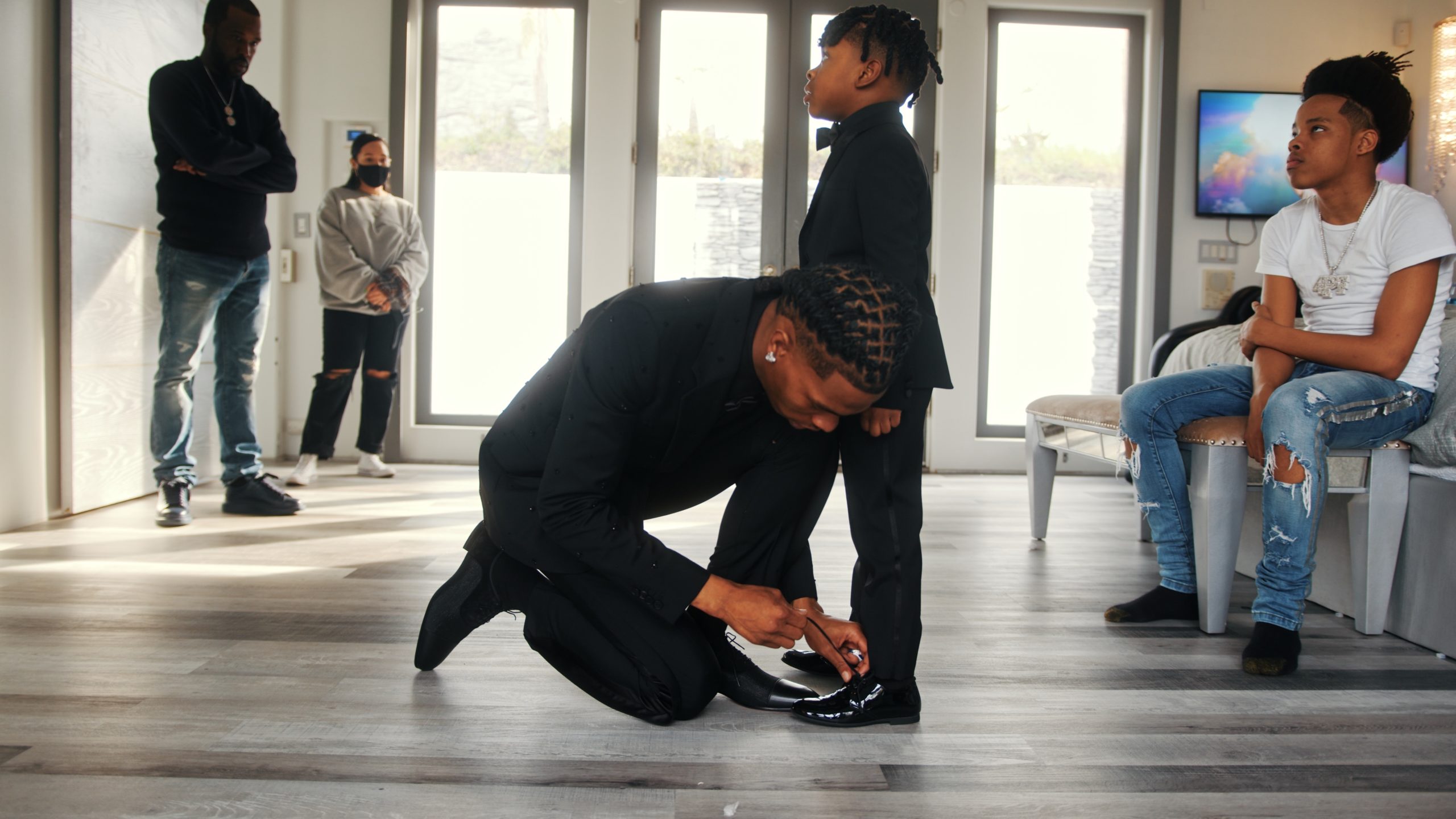
Before we wrapped our conversation with the burgeoning cinematographer, we asked him what advice he would embark to younger filmmakers, and without hesitation, he replied, “Go to a movie you love, go to the credits, look who shot it and go send them an email or Instagram DM, because more times than not, everyone is willing to speak and give their advice in time.”
For more on Josh and the team’s Lil Baby documentary, read our interview below.
V MAGAZINE: Hey Josh! Thanks for chatting with us today. How did you become a part of this project with Lil Baby?
JOSH CHAROW: Out of the blue one day, I got a call from the director Karam Gill. He had been planning the project, so he explained everything to me, and afterward, he asked me, “Are you willing to move to Atlanta in three days to start this project?” So I thought about it, and that’s what I ended up doing.
V: That’s crazy. How did you guys first meet?
JC: We had been introduced through friends a couple of years prior, and then I had shot some other things for him. So I shot a docuseries on the City Girls for Karam a couple of years before that.
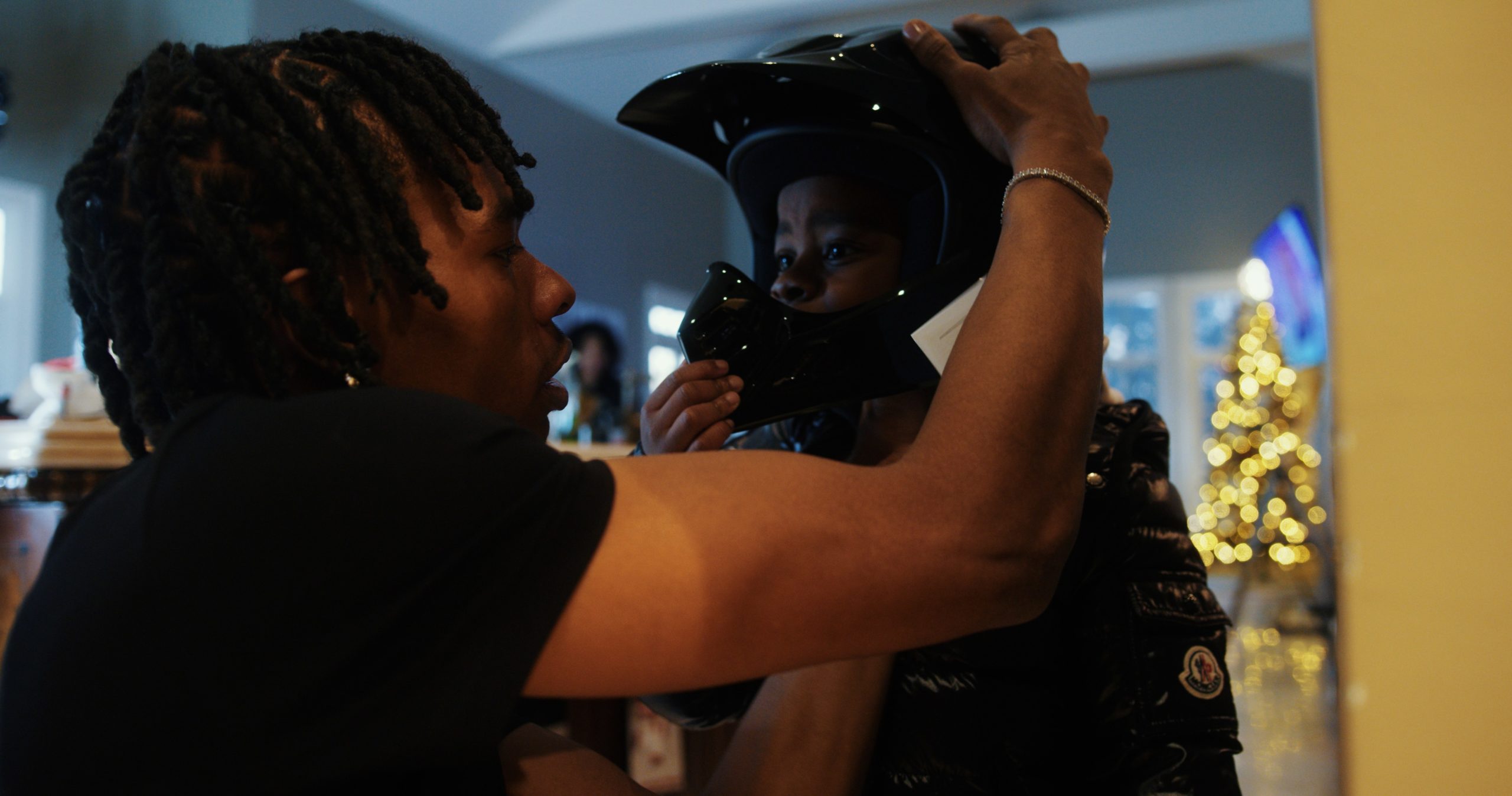
V: That’s very cool. So how long has this whole project been in the making? How long were you following Lil Baby for the documentary?
JC: The process lasted a few years and we didn’t really know how long it would last going into it. But it was sort of like, “Are you willing to move to Atlanta indefinitely for the moment and just be there to capture everything that goes on in this man’s life?” So it would be a couple of months on, a couple of months off over the course of years.
V: Wow, that’s crazy. And as you’re filming Lil Baby through all these crazy moments in his life, do you have a favorite memory or couple of memories from filming?
JC: Absolutely. Throughout the process, we got to see some incredible things. We went to award shows, we traveled across the country. But I think the most meaningful and my favorite moments were the moments that we got to spend in his house shooting the family scenes. Because to me, this was a more unguarded side of him that you don’t often get to see. It just felt like we were capturing something unique, capturing something special, and capturing a very true side of him that you don’t get to see often in the media. So getting to capture those moments is really special. One of the best moments was on Christmas, I spent it with him, and I spent it with the kids. It was amazing and ended up becoming the opening scene.
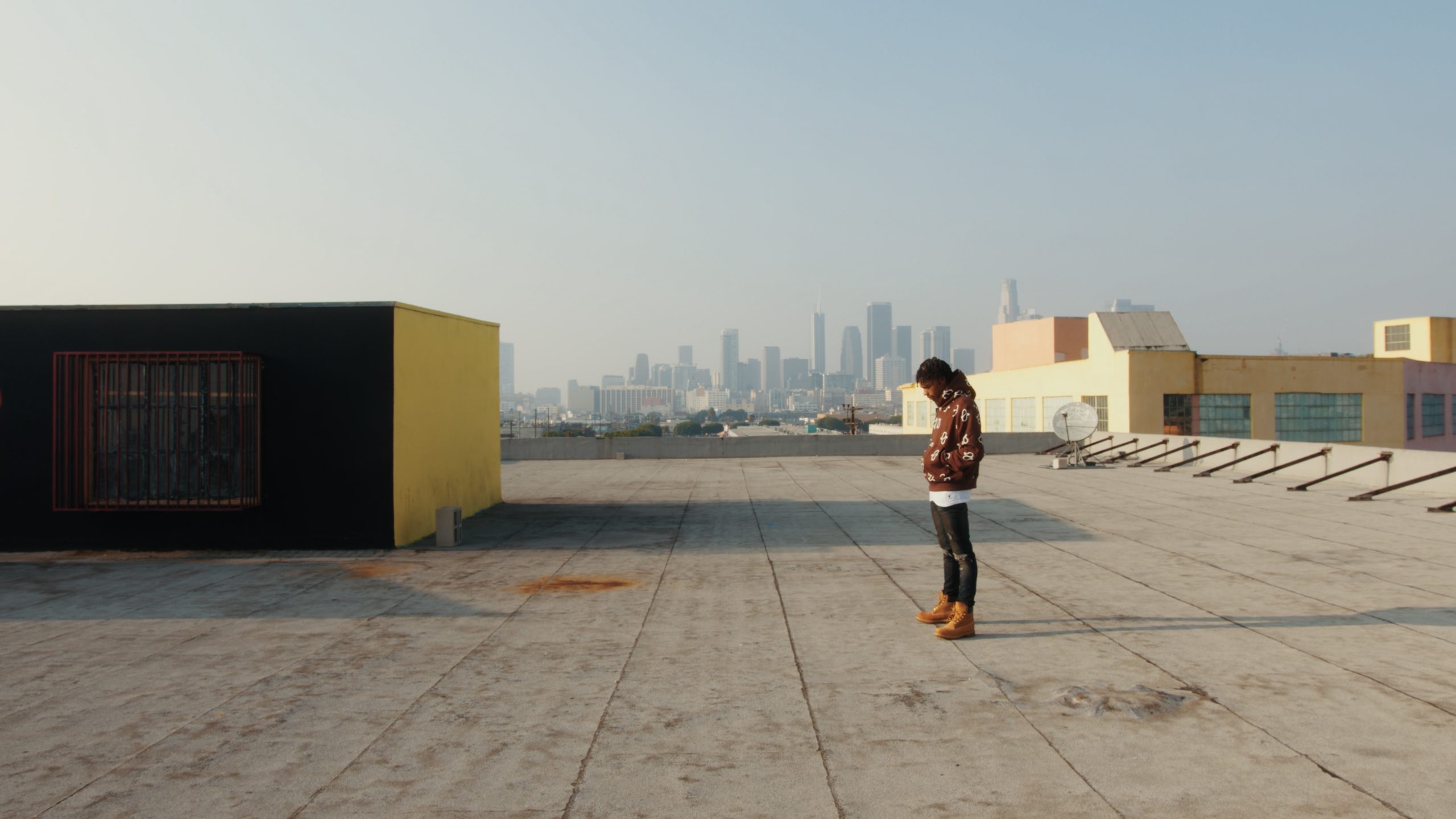
V: What do you love most about Lil Baby’s story? And what are you the proudest of?
JC: I’m proud that we were able to deliver an honest and intimate portrayal. We didn’t just capture this side or that side. We were able to show who Lil Baby is as an artist when he’s performing, and we got to show who Dominique Jones is as a person–going into his old neighborhood and being with his family. It was really important that we could show a full picture of who this man is to the world.
V: I love that. Moving onto the more technical, when conveying the story as a cinematographer, how did you approach this monumental task? Were you pulling from any specific influences?
JC: I’ve always loved documentary. That’s sort of my specialty as a cinematographer. But going into this one was a challenge because I was the only person in Atlanta for months at a time shooting this film. So there were certain points where there was a crew, but for most of the time, I was by myself. As a cinematographer, this is a really unique challenge. On day one, I showed up with a big cinema camera, something you would traditionally shoot a movie on, and Baby actually suggested that we go with something smaller so we could be more nimble. So I had to go to the drawing board and figure out, “What is the smallest camera that will give us the highest resolution, the best color, and that can actually be watched in a movie theater, or watched on Amazon Prime.” So I ended up using the Black Magic Pocket Camera, and it turned out to be this amazing thing because I was shooting with a camera that was the size of a DSLR. It made me much more agile, it gave us a better level of access, and sometimes a big film camera can act as a barrier between you and the subject. Or it can potentially deter the subject or person from living in reality if you feel a huge camera in the room. So getting to use the small camera was almost like a superpower, because it didn’t feel like we were shooting a movie. It just felt like we were moving throughout life.
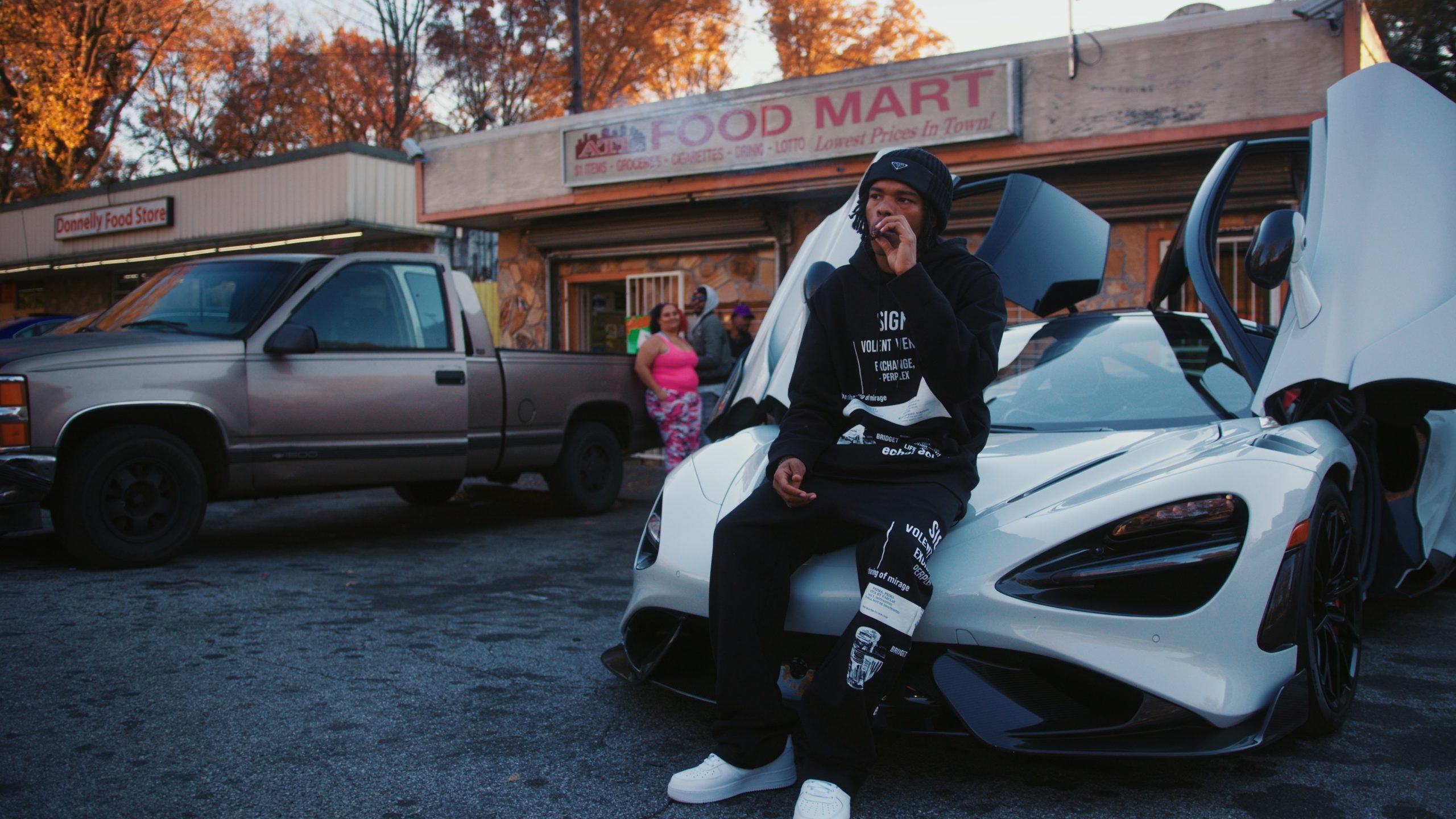
V: Yeah, it’s more casual in nature. And prior to hitting the ground and starting filming, were you watching any specific types of documentaries?
JC: Yeah, I had seen a lot of other musician documentaries. I made sure to watch everything going in, but I knew that going into the set of circumstances that I was stepping into. My job was to be by Baby’s side basically and capture everything going on in his life. So while I was able to plan, while I had a look that I wanted to capture–I really knew that I was going in, and I would have to go wherever life took us. I just went in prepared for the journey.
V: Yeah, that makes sense. And to bring it all the way back, we also want to know how your first got into documentaries and filmmaking. Where did this passion stem from?
JC: For sure. When I was young, I was a skateboard filmer. That was the first time I really got into using the camera. And then, when I was a high schooler, I was an urban explorer. So I would climb skyscrapers, walk subway tracks, explore abandoned subway stations, and I would use a camera to photograph these places. Being a part of that community was really about going into the unknown, taking a camera, and capturing something beautiful that people hadn’t seen. So I think it very directly relates to being a documentary filmmaker, you’re going into somewhere that is unknown to you, and you’re trying to tell an impactful, beautiful, and meaningful story in that world. So it was really that. It was climbing the buildings with a camera that hooked me to art and using a camera.

V: That’s beautiful. I love that. Do you have any advice for young people who are also looking to be cinematographers?
JC: I have lots of advice. The first advice is always just to go and use whatever resources are available, whether that’s a DSLR camera, whether it’s a flip camera, whether it’s a GoPro, whether it’s an iPhone, and just go out and shoot and have fun. Challenge yourself and make the best and the most beautiful thing you can possibly make with what’s available to you. I’d say that’s step number one for someone who wants to become a cinematographer. It’s a long journey, so patience is key. I’m still on it myself. And I would also say to put yourself out there and try and meet other folks in this world. Go to a movie you love, go to the credits, look who shot it and go send them an email or Instagram DM, because more times than not, everyone is willing to speak and give their advice in time.
V: That’s a very good piece of advice, and I think a lot of people will resonate with that one. And finally, what’s next for you?
JC: In general, I want to continue being the cinematographer for documentaries that tell meaningful stories. I love shooting documentaries that are immersive, documentaries that are adventurous, and documentaries that will showcase a world that most people aren’t aware of. So I’m always looking for the right projects to be a part of. Most recently, I’ve been shooting a docuseries for Hulu that will come out sometime next year.
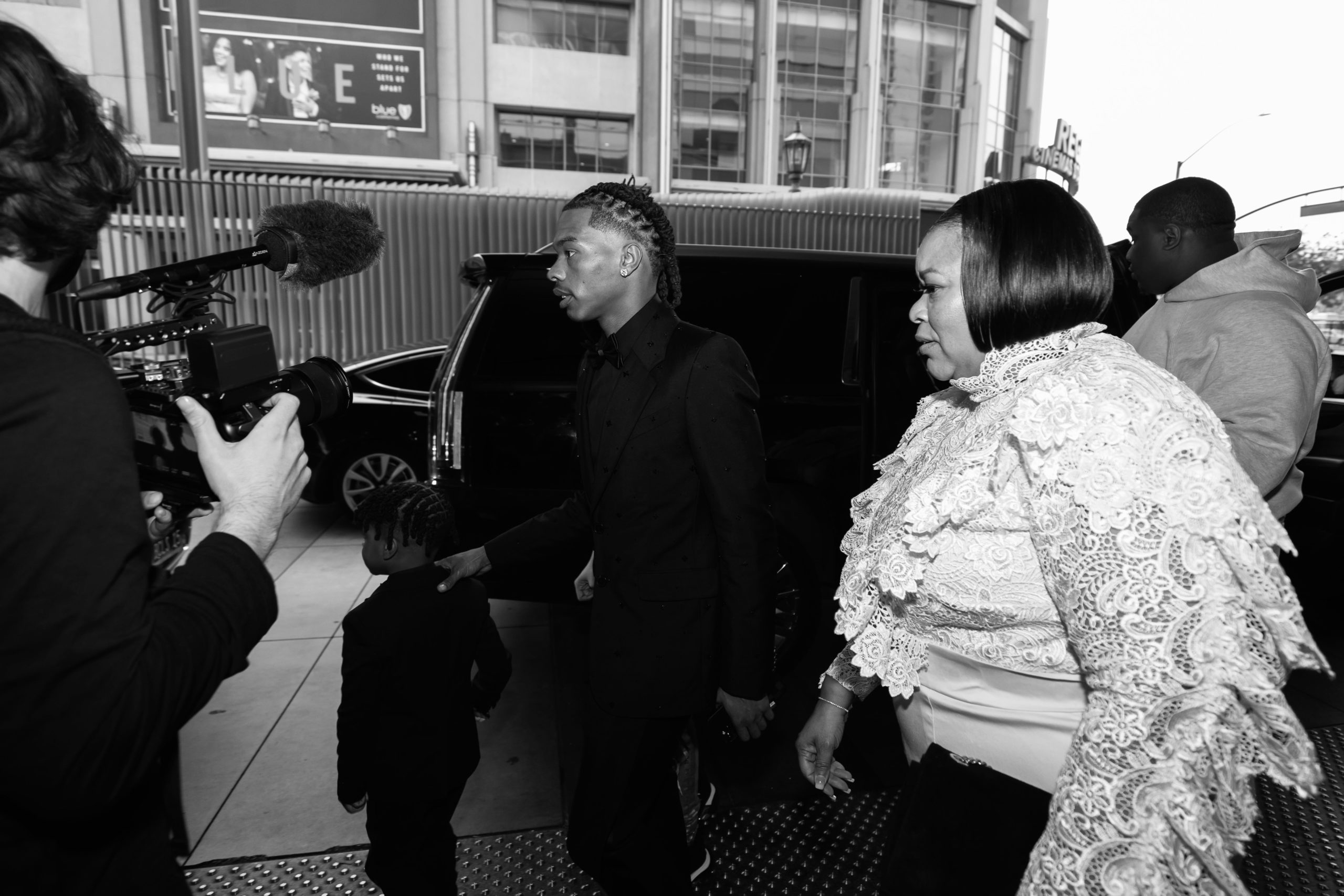
Discover More
